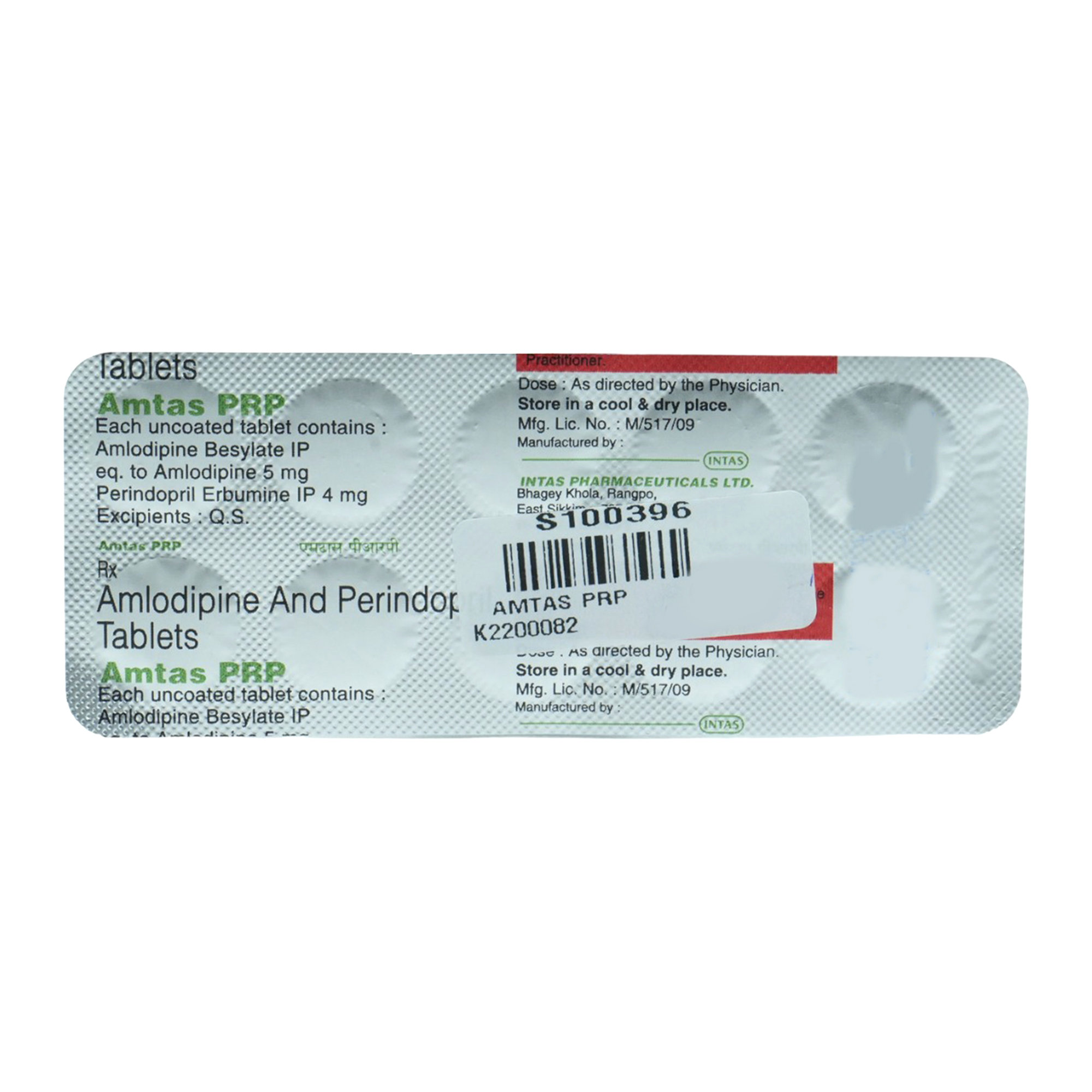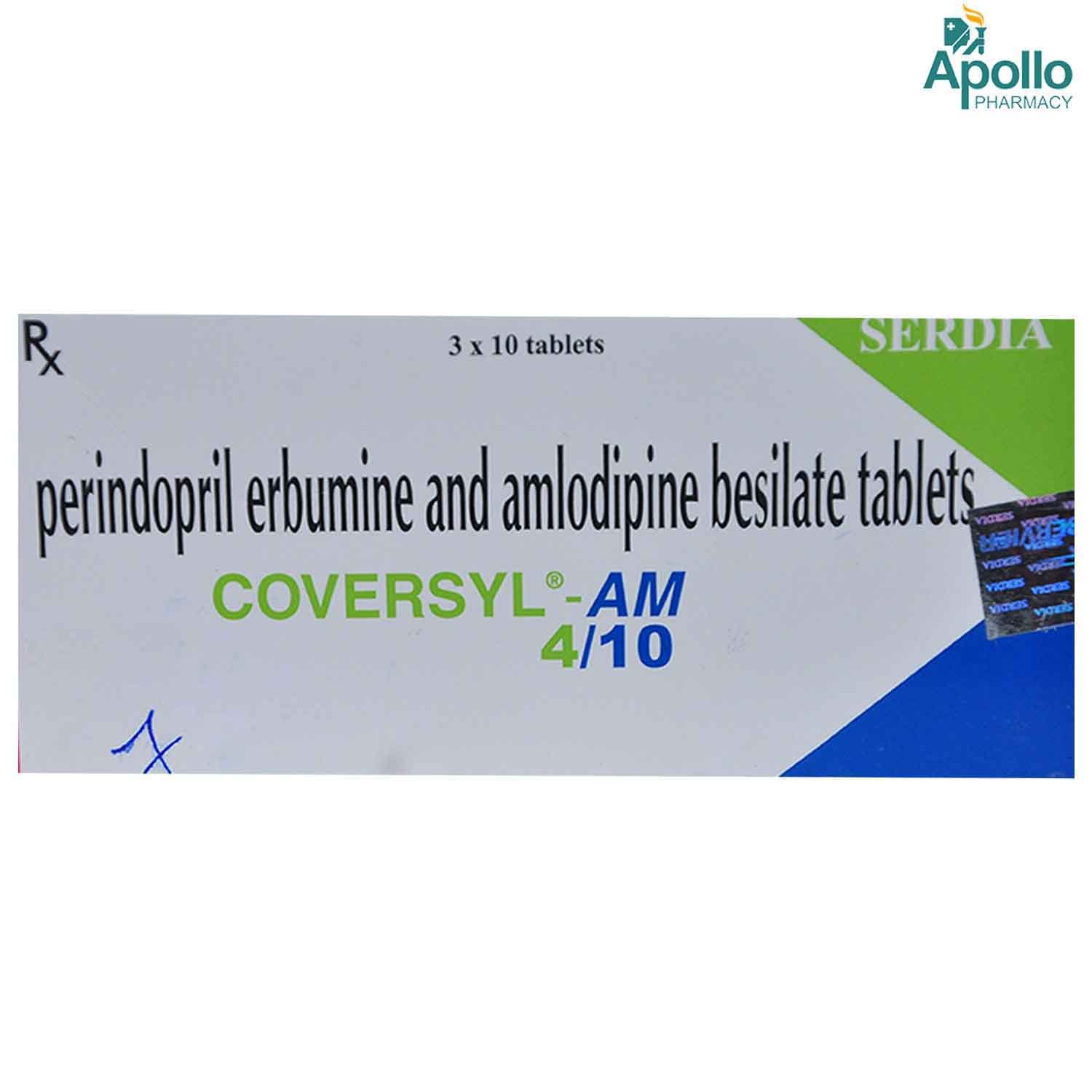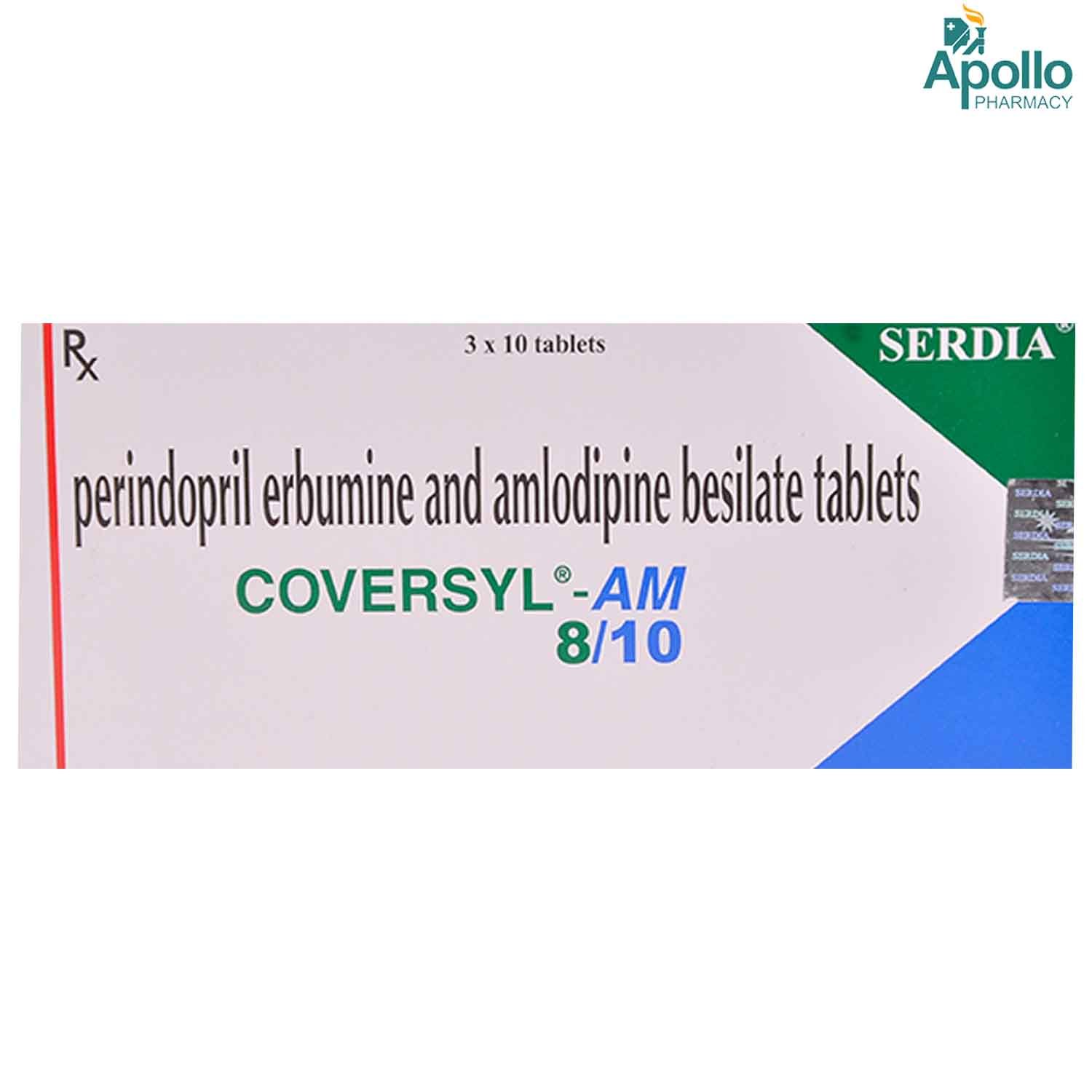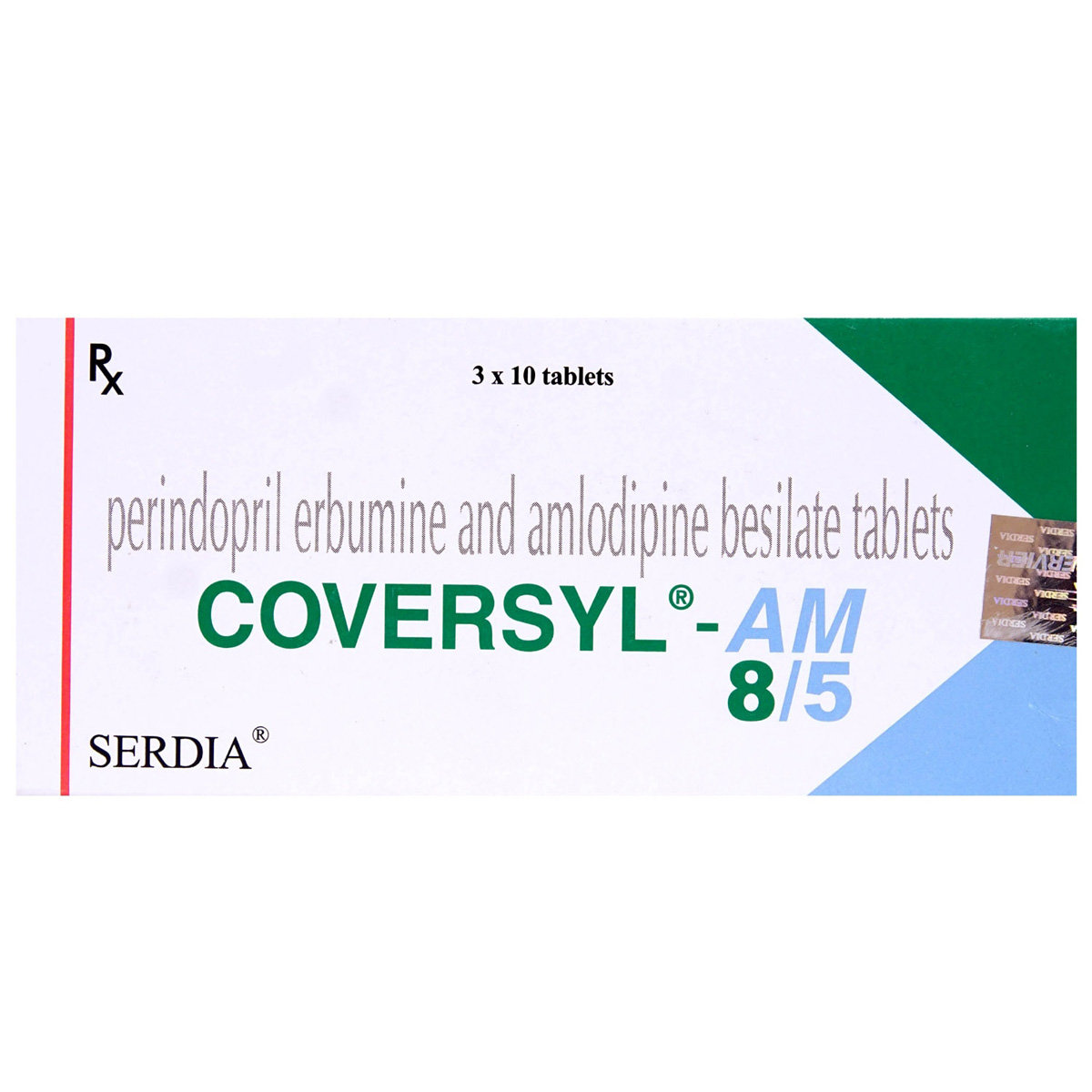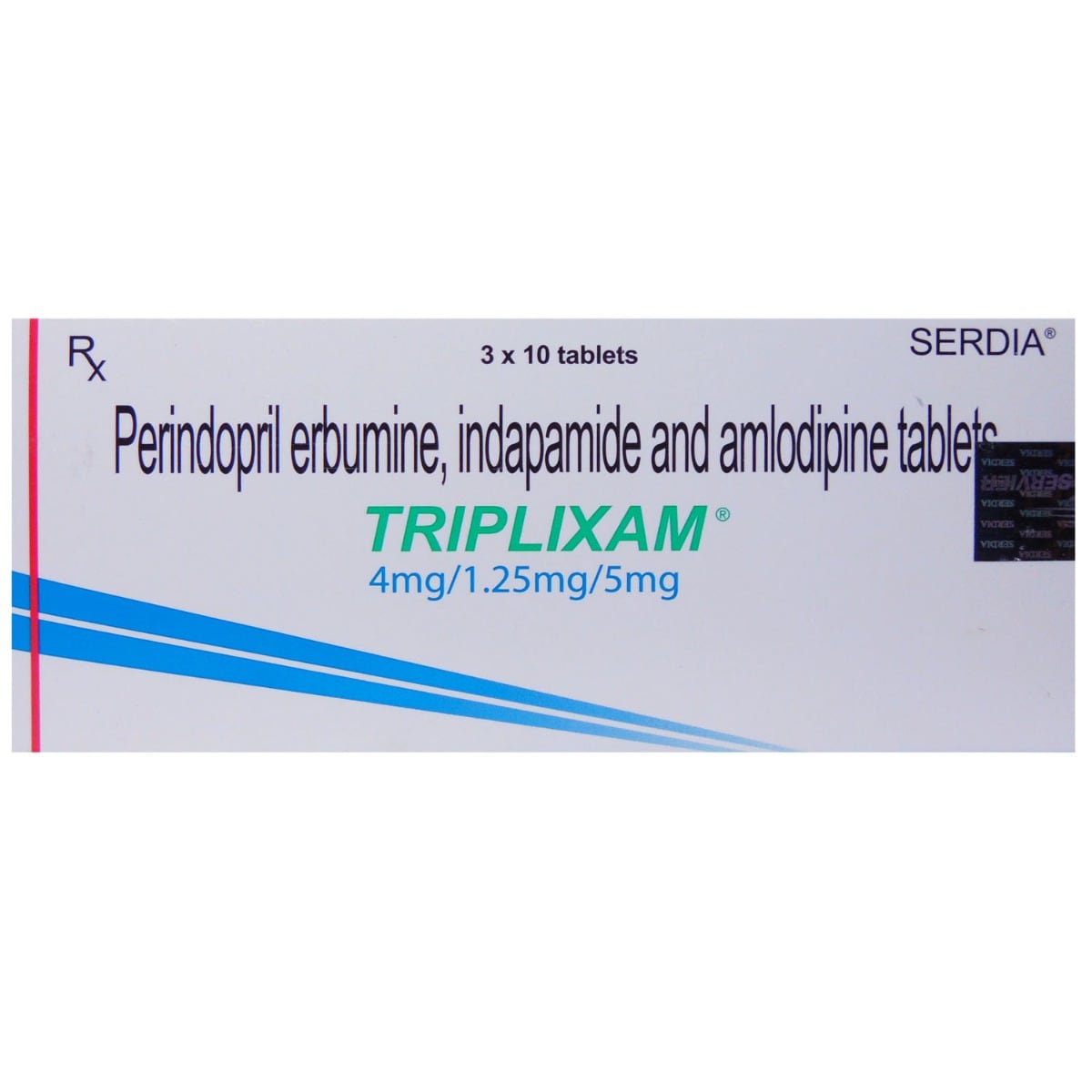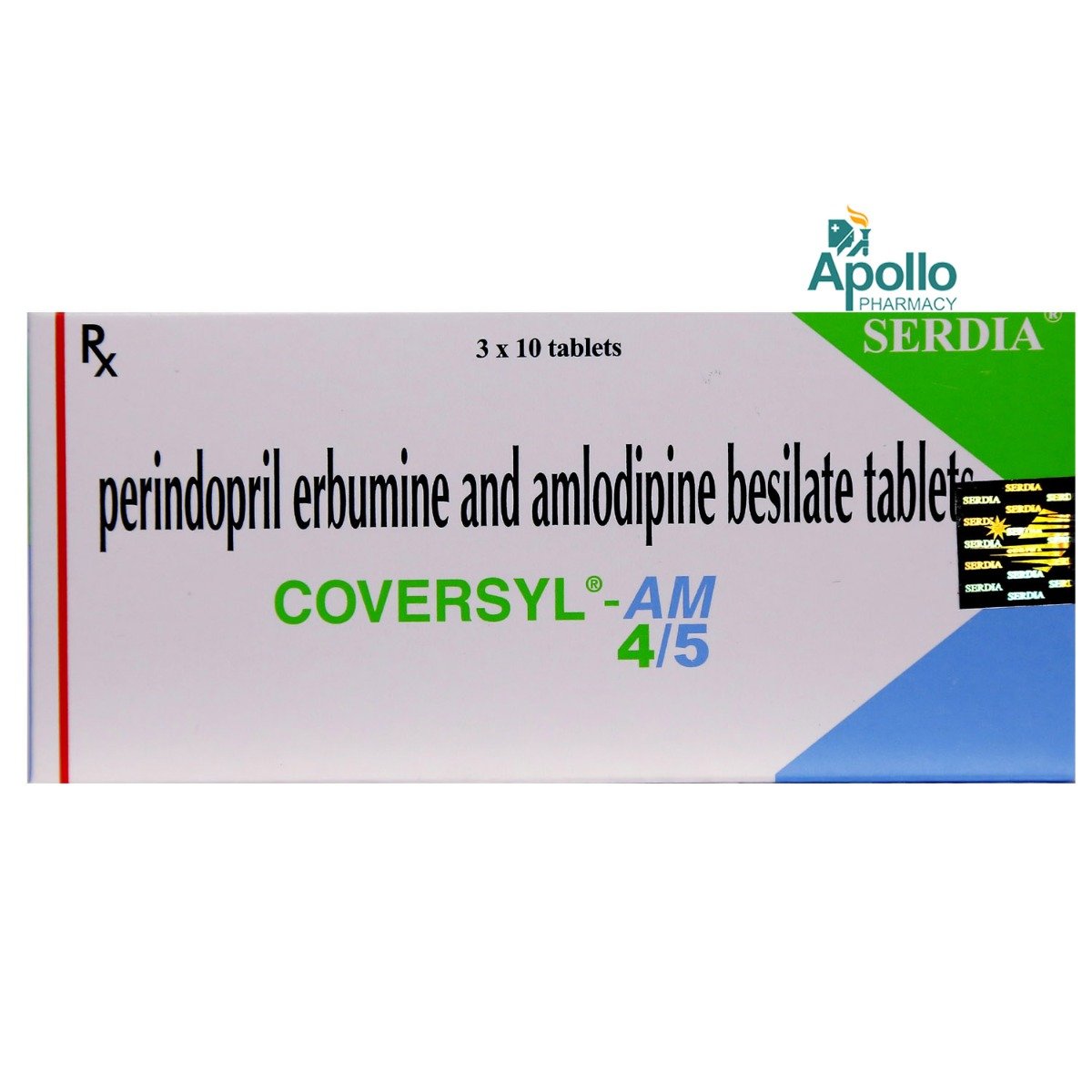Amlodipine+perindopril Erbumine
About Amlodipine+perindopril Erbumine
Amlodipine+perindopril Erbumine belongs to the group of anti-hypertensive medicines used to treat high blood pressure (hypertension). Additionally, it is also used to treat stable coronary artery disease. High blood pressure is a condition in which the blood exerts increased pressure on the walls of blood vessels. Stable coronary artery disease is a condition in which the blood supply to the heart is blocked or reduced.
Amlodipine+perindopril Erbumine is a combination of two drugs, namely: Amlodipine and Perindopril erbumine. Amlodipine relaxes the blood vessels, thereby improves blood flow. Perindopril erbumine widens the blood vessels, making it easier for the heart to pump blood through them. Together, Amlodipine+perindopril Erbumine helps lower the blood pressure, thereby reduces the chances of heart problems such as heart attack and stroke.
You are advised to take Amlodipine+perindopril Erbumine for as long as your doctor has prescribed it for you, depending on your medical condition. In some cases, you may experience certain common side effects such as oedema, headache, dizziness, nausea, and abdominal pain. Most of these side effects do not require medical attention and will resolve gradually over time. However, you are advised to talk to your doctor if the side effects persist or worsen.
Amlodipine+perindopril Erbumine is not recommended during early pregnancy and should not be taken when more than 3months pregnant as it may cause serious harm to the baby. Amlodipine+perindopril Erbumine is not recommended for breastfeeding mothers and children. Amlodipine+perindopril Erbumine may cause dizziness, so drive with caution. Avoid consuming alcohol as it might cause increased dizziness. Inform your doctor about all the medicines you are taking and your health condition to rule out any unpleasant side effects.
Uses of Amlodipine+perindopril Erbumine
Medicinal Benefits
Amlodipine+perindopril Erbumine is a combination of two drugs, namely: Amlodipine and Perindopril erbumine. Amlodipine+perindopril Erbumine belongs to the group of anti-hypertensive medicines used to treat high blood pressure (hypertension) and/or stable coronary artery disease. Amlodipine is a calcium channel blocker that relaxes the blood vessels, thereby improving blood flow. Perindopril erbumine is an angiotensin-converting enzyme inhibitor that widens the blood vessels; this makes it easier for the heart to pump blood through them. Together, Amlodipine+perindopril Erbumine helps treat hypertension, thereby reducing the chances of heart problems such as heart attack and stroke.
Directions for Use
Storage
Side Effects of Amlodipine+perindopril Erbumine
- Oedema
- Headache
- Dizziness
- Flushing
- Light-headedness due to low blood pressure
- Tiredness
- Weakness
- Nausea
- Vomiting
Drug Warnings
Do not take Amlodipine+perindopril Erbumine if you are allergic to any of its contents; if you have angioedema, severe water retention, low blood pressure, or low blood potassium. Inform your doctor if you have diabetes, heart problems, gout, parathyroid gland problems, heart failure, collagen disease, atherosclerosis (hardening of arteries), excess acid in the blood, liver/kidney problems, if you are on a low-salt diet, if you are taking lithium/potassium-sparing diuretics, or if you are taking any other blood pressure-lowering medicines. Amlodipine+perindopril Erbumine is not recommended during early pregnancy and should not be taken when more than 3 months pregnant as it may cause serious harm to the baby. Amlodipine+perindopril Erbumine is not recommended for breastfeeding mothers and children. Amlodipine+perindopril Erbumine may cause dizziness, so drive with caution. Keep your doctor informed about your health condition and medications to rule out any interactions.
Drug Interactions
Drug-Drug Interactions: Amlodipine+perindopril Erbumine may interact with anti-maniac drug (lithium), muscle relaxer (dantrolene), anti-cancer (estramustine), drugs used to treat heart failure (sacubitril+valsartan), potassium-sparing drugs (triamterene, amiloride), anti-hypertensive (aliskiren), anticoagulant (heparin), antibiotic (trimethoprim+sulfamethoxazole), potassium-sparing drugs (eplerenone, spironolactone).
Drug-Food Interactions: Avoid consuming grapefruit and grapefruit juice whilst taking Amlodipine+perindopril Erbumine as it might increase the blood levels of amlodipine; this can lead to an unpredictable increase in the blood pressure-lowering effect of Amlodipine+perindopril Erbumine. Inform your doctor if you are taking St. John's wort (a herbal supplement).
Drug-Disease Interactions: Inform your doctor if you have angioedema, severe liver/kidney problems, liver encephalopathy, severe water retention, low blood pressure, heart failure, or low blood potassium.
Drug-Drug Interactions Checker List:
Safety Advice

Alcohol
cautionAvoid consuming alcohol as it might cause increased dizziness.

Pregnancy
unsafeAmlodipine+perindopril Erbumine is not recommended during early pregnancy and should not be taken when more than 3 months pregnant as it may cause serious harm to the baby. Please consult your doctor if you are pregnant, think you are pregnant or planning for pregnancy.

Breast Feeding
unsafeAmlodipine+perindopril Erbumine is not recommended for breastfeeding mothers. Talk to your doctor if you have any concerns.

Driving
cautionAmlodipine+perindopril Erbumine may cause dizziness, do not drive or operate heavy machinery if you feel dizzy.

Liver
cautionDose adjustment may be needed. Please consult your doctor if you have liver problems or any concerns regarding this. Avoid taking Amlodipine+perindopril Erbumine if you have severe liver disease or hepatic encephalopathy.

Kidney
cautionDose adjustment may be needed. Avoid taking Amlodipine+perindopril Erbumine if you have severe kidney problems. Please consult your doctor if you have kidney problems or any concerns regarding this.

Children
unsafeAmlodipine+perindopril Erbumine is not recommended for children as safety and effectiveness have not been established.
Habit Forming
Diet & Lifestyle Advise
- You are advised to consume low salt and low-fat diet.
- Regular exercise is also recommended.
- Eat a diet rich in whole grains, vegetables, and fruits.
- Avoid smoking and alcohol consumption.
- Maintain a healthy weight with proper diet and exercise.
- Practice meditation or yoga as it helps in managing stress.
Special Advise
- Regular monitoring of blood pressure levels, kidney function and electrolyte levels while taking Amlodipine+perindopril Erbumine is advised.
- If you are due to undergo any surgery, inform the doctor that you are taking Amlodipine+perindopril Erbumine.
Patients Concern
Disease/Condition Glossary
High blood pressure (hypertension): It is a condition in which the blood exerts increased pressure on the walls of blood vessels leading to hypertension. This condition can lead to hardened arteries (blood vessels), decreasing the blood and oxygen flow to the heart. Raised blood pressure can cause chest pain (angina) and heart attack (when the blood supply to the heart is blocked). High blood pressure also causes brain damage (stroke) and kidney failure. Symptoms of high blood pressure include headache, dizziness, nose bleed, changes in vision, chest pain, weakness and dyspnoea (shortness of breath). However, most of the time, the signs and symptoms of hypertension are none.
Stable coronary artery disease: It is a condition in which the blood supply to the heart is blocked or reduced. Atherosclerosis (build-up of plaque in the arteries) is the main cause of stable coronary artery disease.
FAQs
Amlodipine+perindopril Erbumine contains Amlodipine and Perindopril erbumine. Amlodipine relaxes the blood vessels, thereby improving blood flow. Perindopril erbumine widens the blood vessels; this makes it easier for the heart to pump blood through them. Together, Amlodipine+perindopril Erbumine helps treat high blood pressure.
Amlodipine+perindopril Erbumine may cause palpitations, a sensation that the heart is racing, pounding, or fluttering. A minor fluctuation should not be a worry; however, if palpitations continue or you begin to feel unwell, speak with your doctor.
High blood pressure increases the workload on the arteries and heart. If untreated, it could damage the blood vessels of the heart, brain, and kidney and might result in stroke, heart failure or kidney failure. Hypertension increases the risk of heart attacks. Therefore, anti-hypertensives such as Amlodipine+perindopril Erbumine are used to lower the blood pressure to normal; this reduces the risk of developing these disorders.
Do not stop taking Amlodipine+perindopril Erbumine without consulting your doctor, as it may lead to a rise in blood pressure. To treat your condition effectually, continue taking Amlodipine+perindopril Erbumine for as long as your doctor has prescribed it. Do not be reluctant to speak with your doctor if you experience any difficulty while taking Amlodipine+perindopril Erbumine.
Light-headedness could be a side-effect of Amlodipine+perindopril Erbumine. It occurs due to low blood pressure leading to dizziness on standing. If you experience this, do not try to stand up suddenly or start walking; instead, lie down and get up slowly only when you feel better. People taking Amlodipine+perindopril Erbumine are advised to regularly monitor their blood pressure levels to avoid unpleasant events.
Avoid consuming grapefruit and grapefruit juice whilst taking Amlodipine+perindopril Erbumine as it might increase the blood levels of amlodipine; this can lead to an unpredictable increase in the blood pressure-lowering effect of Amlodipine+perindopril Erbumine. Inform your doctor if you are on a salt-restricted diet, use salt substitutes or if you are taking potassium supplements.

